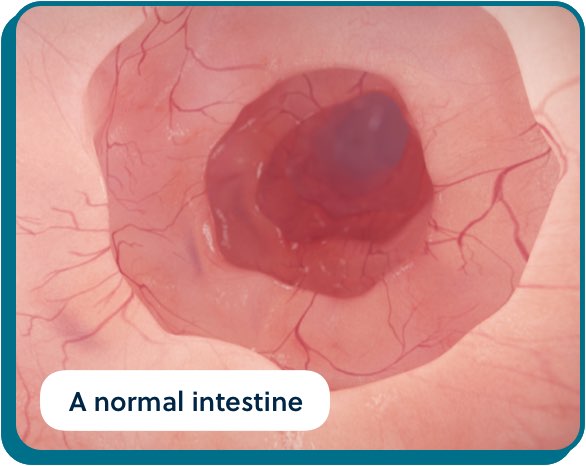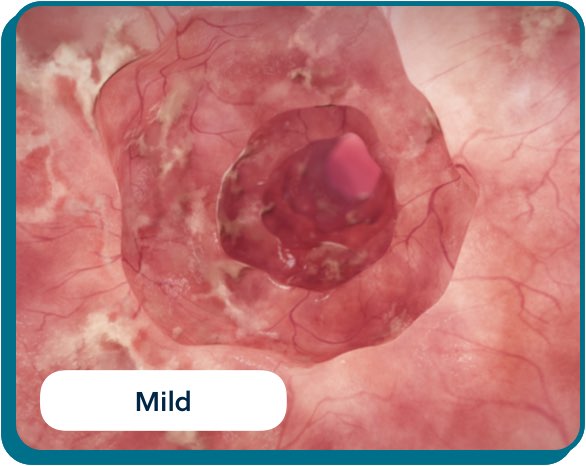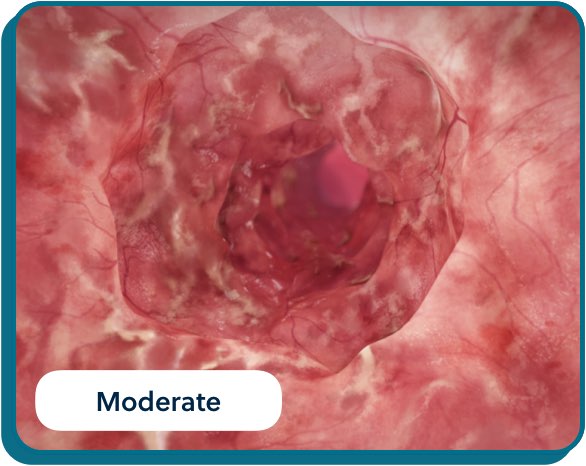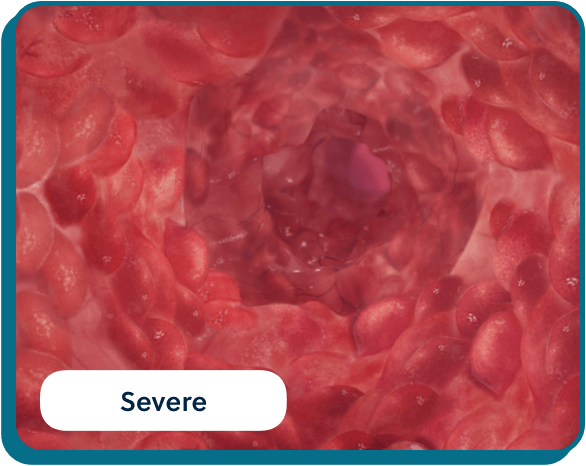What’s a progressive disease?

A progressive disease is a condition that can get worse over time like Crohn’s. As it progresses, the chronic inflammation in the intestines may lead to complications such as strictures, fistulas, and abscesses.

On this page, you’ll find info about:
The problem with inflammation
With Crohn’s, inflammation can affect any part of the gastrointestinal (GI) tract. Additionally, in many cases Crohn’s can progress over time, causing more inflammation. This active inflammation may lead to more symptoms and more severe disease.
How Crohn’s progression can look
An endoscopy is a test that your doctor will use to check the severity of your disease. This test uses a tiny camera attached to a long, thin, flexible tube that allows your doctor to see inside your intestines. While a doctor is needed to diagnose Crohn’s, you don’t have to be one to see what inflammation can do to damage your intestinal lining. Look for yourself.
Understanding the difference in severity
Before a gastroenterologist can determine the severity of Crohn's, there are a few factors taken into consideration. From the symptoms experienced, complications, to how much the disease has impacted your life. To help determine the severity of your disease and make decisions about disease management, your gastroenterologist may use the Crohn’s Disease Activity Index (CDAI) along with other tests.
Mild to moderate Crohn’s
- Diarrhea
- Abdominal pain
- No signs of: dehydration, high fever, significant weight loss, or obstruction
Moderate to severe Crohn’s
- Diarrhea
- Abdominal pain
- Abdominal tenderness
- Intermittent nausea or vomiting
- Significant weight loss
- Moderate to severe active intestinal lining disease
Severe Crohn’s
- Diarrhea
- Abdominal pain
- Abdominal tenderness
- Persistent vomiting
- Significant weight loss and marked muscle loss
- High fever
- Evidence of intestinal obstruction (blockage) or abscesses (localized infections of collections of pus)
- Severe intestinal lining disease
Crohn’s outside the GI tract
The GI tract isn’t the only home of Crohn’s disease. When the inflammation behind Crohn’s moves beyond the GI tract, it can cause something known as extraintestinal manifestations (EIMs).
The most common EIMs include:
Skin – tender bumps, painful ulcerations, and other sores/rashes
Muscles and joint system – pain and stiffness
Liver, pancreas, and gallbladder – fatty liver disease, autoimmune liver disease, pancreas disease, gallbladder disease, and liver injury
Eyes – redness, pain, irritation, and itching
Whether it’s mild, moderate, or severe…
A goal in treating Crohn’s, no matter the severity, is managing symptoms by reducing inflammation. A gastroenterologist can help by identifying a treatment plan that could help reduce inflammation and relieve symptoms. Long-term treatment goals include improving the intestinal lining and preventing the occurrence of disease complications.
Recommended topics for you
Partner with a gastroenterologist
A gastrointestinal (GI) disease specialist can help you manage your inflammatory bowel disease (IBD).
Curious about treatment options?
Partner with your doctor to figure out your Crohn's treatment goals and a treatment plan that may be right for you.




